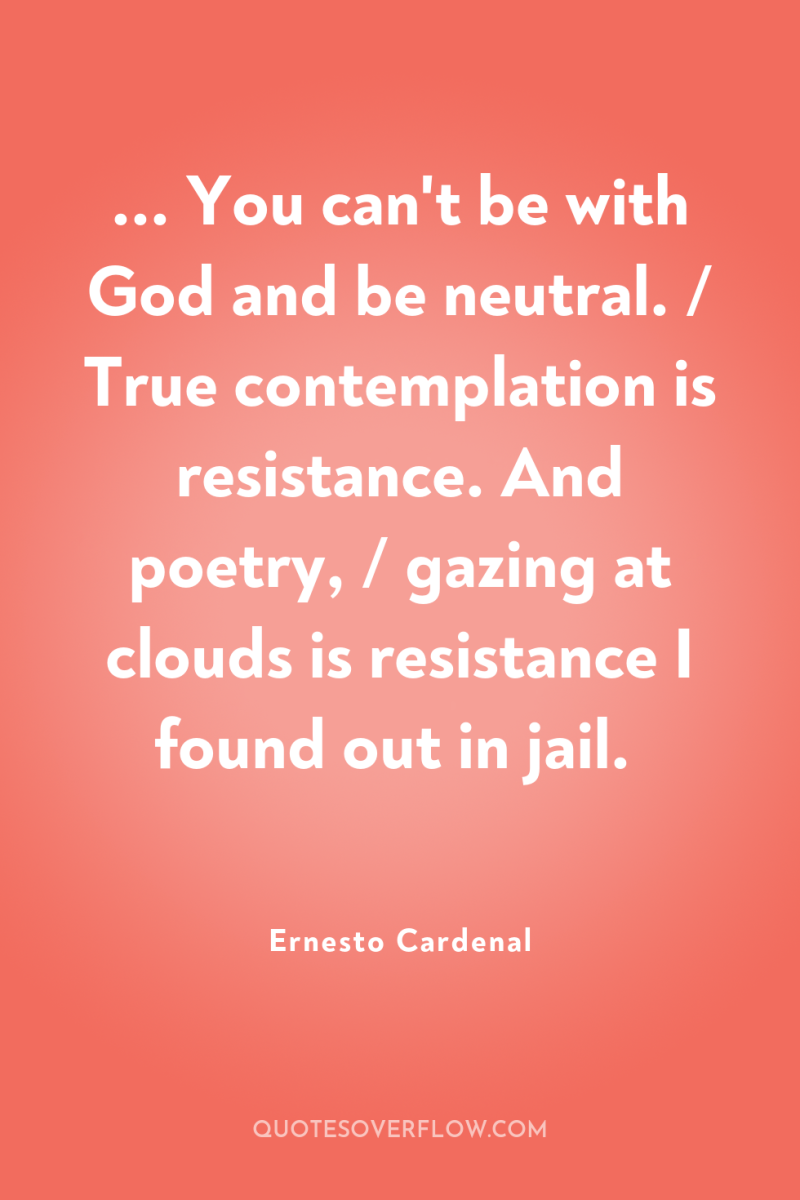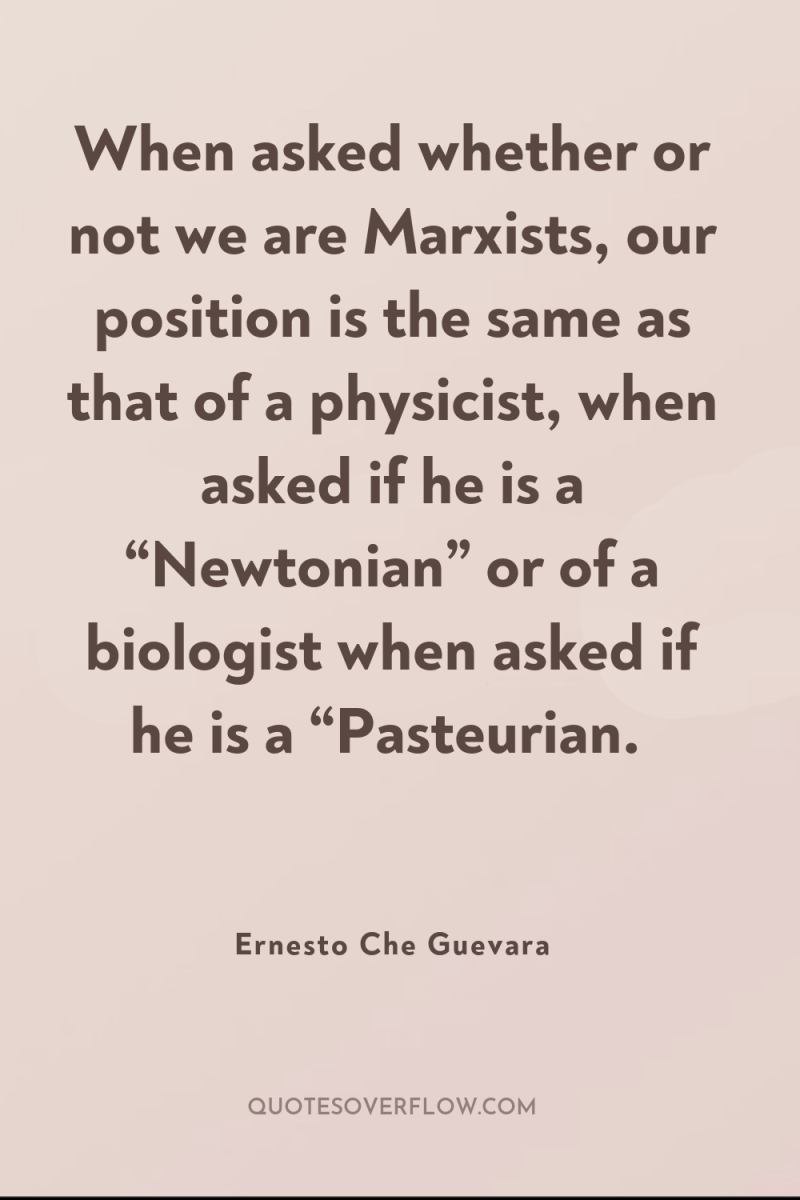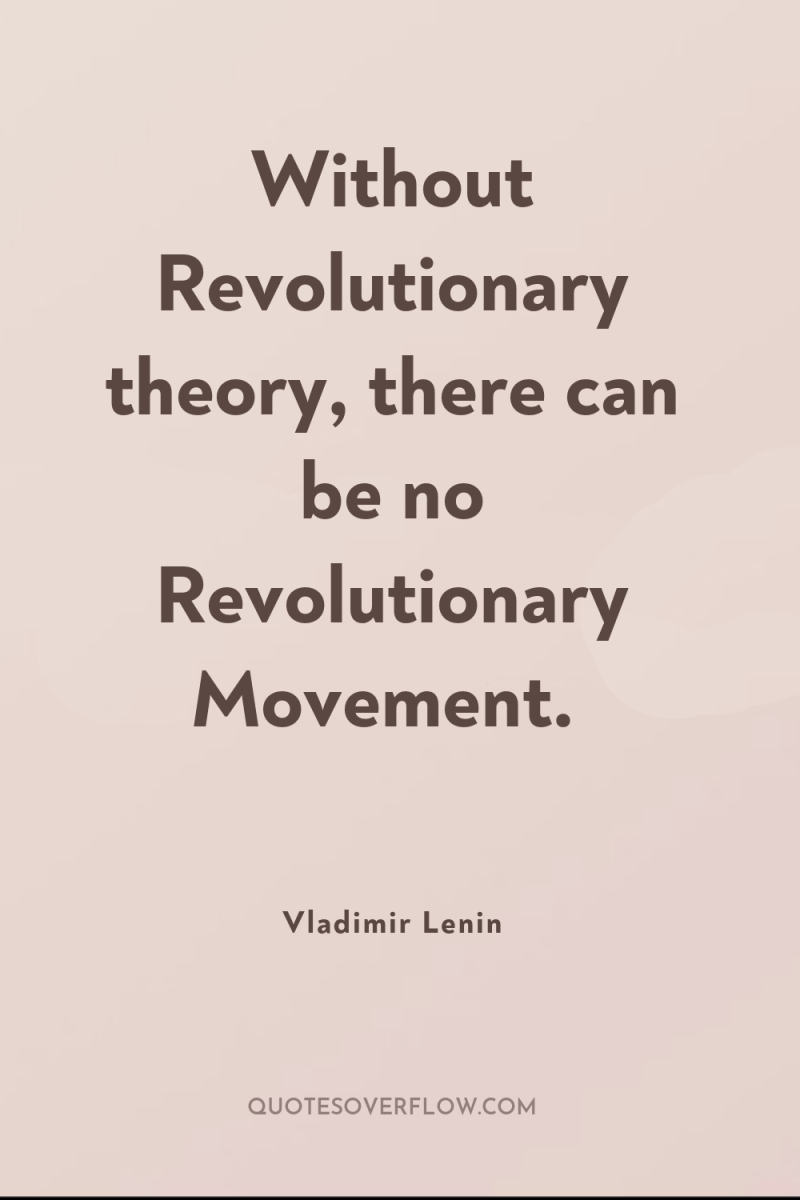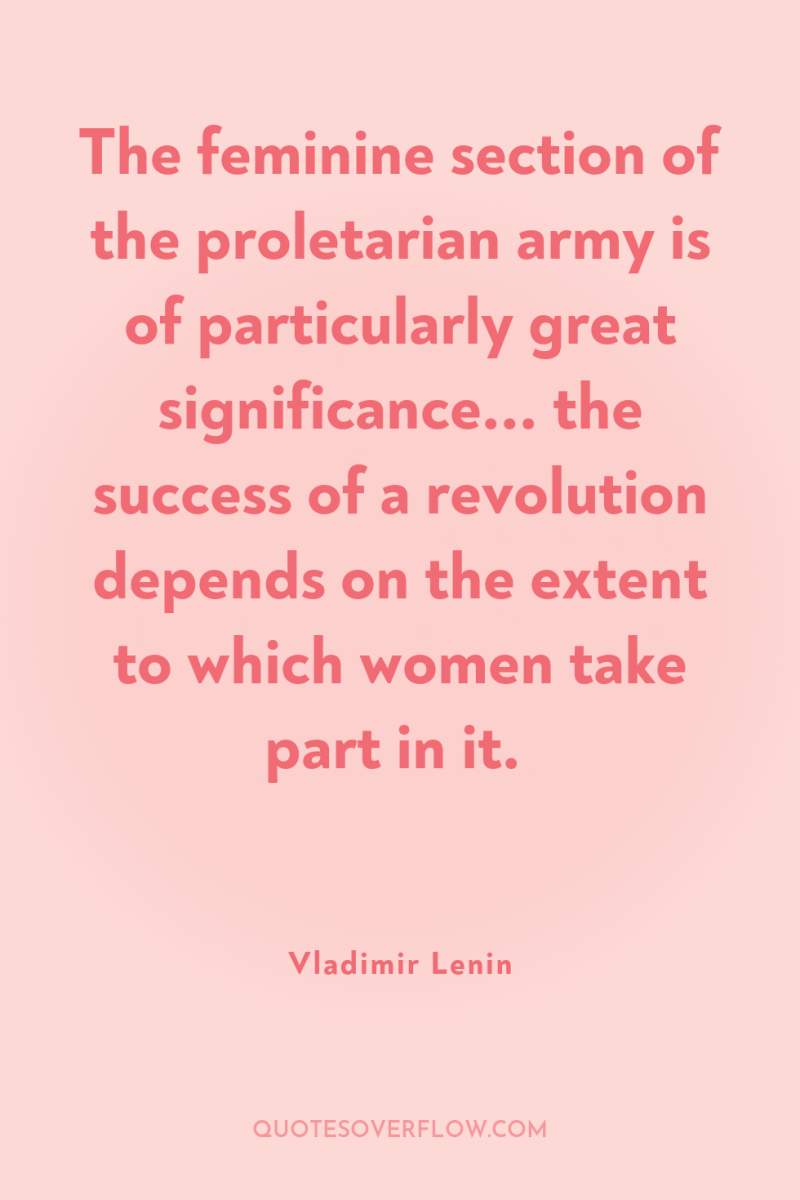
1
Let us not seek to satisfy our thirst for freedom by drinking from the cup of bitterness and hatred.Unknown

2
After all, if you do not resist the apparently inevitable, you will never know how inevitable the inevitable was.Terry Eagleton
3
The world economy would collapse if a significant number of people were to realize and then act on the realization that it is possible to enjoy many if not most of the things that they enjoy without first having to own them.Mokokoma Mokhonoana

4
Being human means throwing your whole life on the scales of destiny when need be, all the while rejoicing in every sunny day and every beautiful cloud.Rosa Luxemburg

5
LIFE IS SUBVERSIVEErnesto Cardenal

6
... You can't be with God and be neutral. / True contemplation is resistance. And poetry, / gazing at clouds is resistance I found out in jail.Ernesto Cardenal
7
Beneath the pseudo-scientific terminology one can in each case recognize a phantasy of which almost every element is to be found in phantasies which were already current in medieval Europe. The final, decisive battle of the Elect (be they the ‘Aryan race’ or the ‘proletariat’) against the hosts of evil (be they the Jews or the ‘bourgeoisie’); a dispensation on which the Elect are to be most amply compensated for all their sufferings by the joys of total domination or of total community or of both together; a world purified of all evil and in which history is to find its consummation - these ancient imaginings are with us still.Norman Cohn

8
When asked whether or not we are Marxists, our position is the same as that of a physicist, when asked if he is a “Newtonian” or of a biologist when asked if he is a “Pasteurian.Ernesto Che Guevara
9
1. Bangladesh.. In 1971 .. Kissinger overrode all advice in order to support the Pakistani generals in both their civilian massacre policy in East Bengal and their armed attack on India from West Pakistan.. This led to a moral and political catastrophe the effects of which are still sorely felt. Kissinger’s undisclosed reason for the ‘tilt’ was the supposed but never materialised ‘brokerage’ offered by the dictator Yahya Khan in the course of secret diplomacy between Nixon and China.. Of the new state of Bangladesh, Kissinger remarked coldly that it was ‘a basket case’ before turning his unsolicited expertise elsewhere.2. Chile.. Kissinger had direct personal knowledge of the CIA’s plan to kidnap and murder General René Schneider, the head of the Chilean Armed Forces .. who refused to countenance military intervention in politics. In his hatred for the Allende Government, Kissinger even outdid Richard Helms .. who warned him that a coup in such a stable democracy would be hard to procure. The murder of Schneider nonetheless went ahead, at Kissinger’s urging and with American financing, just between Allende’s election and his confirmation.. This was one of the relatively few times that Mr Kissinger (his success in getting people to call him ‘Doctor’ is greater than that of most PhDs) involved himself in the assassination of a single named individual rather than the slaughter of anonymous thousands. His jocular remark on this occasion–‘ I don’t see why we have to let a country go Marxist just because its people are irresponsible’–suggests he may have been having the best of times..3. Cyprus.. Kissinger approved of the preparations by Greek Cypriot fascists for the murder of President Makarios, and sanctioned the coup which tried to extend the rule of the Athens junta (a favoured client of his) to the island. When despite great waste of life this coup failed in its objective, which was also Kissinger’s, of enforced partition, Kissinger promiscuously switched sides to support an even bloodier intervention by Turkey. Thomas Boyatt .. went to Kissinger in advance of the anti- Makarios putsch and warned him that it could lead to a civil war. ‘Spare me the civics lecture, ’ replied Kissinger, who as you can readily see had an aphorism for all occa .Christopher Hitchens

10
Without Revolutionary theory, there can be no Revolutionary Movement.Vladimir Lenin
11
The greatest purveyor of violence in the world : My own Government, I can not be Silent.Unknown

12
Historical determinism is a recipe for political quietism.Terry Eagleton

13
Successful revolutions are those which end up by erasing all traces of themselves.Terry Eagleton
14
[F]or the most part football these days is the opium of the people, not to speak of their crack cocaine. Its icon is the impeccably Tory, slavishly conformist Beckham. The Reds are no longer the Bolsheviks. Nobody serious about political change can shirk the fact that the game has to be abolished. And any political outfit that tried it on would have about as much chance of power as the chief executive of BP has in taking over from Oprah Winfrey.Terry Eagleton
15
..the working classes–that motor of social transformation which Marx increasingly stipulated for the role of the proletariat; the dispossessed and alienated revolutionary vehicle of his early writings, which later became defined and analysed into the collective worker who 'owner' nothing but his labour power–chains rather than assets. In the event, the working class actually came to fulfill most of the optimistic prognoses of liberal thinkers; they have become largely 'socialized' through access to privilege, consumption, organization, and voting participation, as well as obtaining massive social benefits. They have become supporters of the status quo–not vociferous perhaps, but tacit approvers and beneficiaries none the less. The ferment today comes from sections of the community to whom political and social thought has never hitherto assigned any specific role; who have hitherto never developed specific political institutions of their own: youth, mostly students; racial minorities, a few dissident intellectuals–these form the new 'proletariat'. The basis of their dissatisfaction is not necessarily and always an objective level of deprivation but rather a mixture of relative deprivation–consciousness of possibilities and of the blockages which prevent their attainment–and above all an articulate dissatisfaction with the society around them. There is no good reason why such groups should not form, and act like, a proletariat in a perfectly Marxist sense. The economic causality collapses; the analysis of a decaying bourgeois society and the determination to overthrow it remain. .J. P. Nettl
16
Phenomenology became the grounds for variants of standpoint epistemology: if a phenomenon seems real, then it is real enough. A Marxist vision of standpoint epistemology, on the other hand, does not privilege individual perception as the arbiter of reality.Holly Lewis
17
Andrei Yanuaryevich (one longs to blurt out, “Jaguaryevich”) Vyshinsky, availing himself of the most flexible dialectics (of a sort nowadays not permitted either Soviet citizens or electronic calculators, since to them yes is yes and no is no), pointed out in a report which became famous in certain circles that it is never possible for mortal men to establish absolute truth, but relative truth only. He then proceeded to a further step, which jurists of the last two thousand years had not been willing to take: that the truth established by interrogation and trial could not be absolute, but only, so to speak, relative. Therefore, when we sign a sentence ordering someone to be shot we can never be absolutely certain, but only approximately, in view of certain hypotheses, and in a certain sense, that we are punishing a guilty person. Thence arose the most practical conclusion: that it was useless to seek absolute evidence-for evidence is always relative-or unchallengeable witnesses-for they can say different things at different times. The proofs of guilt were relative, approximate, and the interrogator could find them, even when there was no evidence and no witness, without leaving his office, “basing his conclusions not only on his own intellect but also on his Party sensitivity, his moral forces” (in other words, the superiority of someone who has slept well, has been well fed, and has not been beaten up) “and on his character” (i.e., his willingness to apply cruelty! )… In only one respect did Vyshinsky fail to be consistent and retreat from dialectical logic: for some reason, the executioner’s bullet which he allowed was not relative but absolute… .Aleksandr Solzhenitsyn
18
From that day on I clearly understood that the kingdom of God can never mix with politics. The ultimate, stated aim of Marxist teaching is the complete eradication of all religion. The pure bride of Christ can never be controlled by an atheistic government or led by men who hate God!Brother Yun

19
The feminine section of the proletarian army is of particularly great significance... the success of a revolution depends on the extent to which women take part in it.Vladimir Lenin
20
Those who reject Christianity will not be moved by Christ’s statement that poverty is blessed. But here a rather remarkable fact comes to my aid. Those who would most scornfully repudiate Christianity as a mere ‘opiate of the people’ have a contempt for the rich, that is, for all mankind except the poor. They regard the poor as the only people worth preserving from ‘liquidation’, and place in them the only hope for the human race. But this is not compatible with a belief that the effects of poverty on those who suffer it are wholly evil; it even implies that they are good. The Marxist thus finds himself in real agreement with the Christian in those two beliefs which Christianity paradoxically demands — that poverty is blessed and yet ought to be removed.C.s. Lewis
21
Here, the asking of the question who we are is in fact more dangerous than any other opposition found at the same level of certainty about man (the final form of Marxism, which has essentially nothing to do with either Judaism or even with Russia; if somewhere a non-developed spiritualism is still slumbering, it is in the Russian people; Bolshevism is originally Western; it is a European possibility: the emergence of the masses, industry, technology, the extinction of Christianity; but inasmuch as the dominance of reason as an equalizing of everyone is but the consequence of Christianity and as the latter is fundamentally of Jewish origin (cf. Nietzsche's thought on the slave revolt with respect to morality), Bolshevism is in fact Jewish; but then Christianity is also fundamentally Bolshevist! And what are the decisions that become necessary on that basis?). But the danger of the question "Who are we?" is at the same time--if danger can necessitate what is highest--the sole path by which to succeed in coming to ourselves and thus in initiating the original salvation, that is, the justification of the Occident on the basis of its history. The danger of this question is in itself so essential for us that it loses the appearance of opposition to the new German will. .Martin Heidegger
22
The proponents of Marxian biology appear in unexpected places. In the early disputes over evolution, the most effective aid to the Marxian line came from the humanitarian but conservative Christians, who not only rejected evolution on theological grounds, but who also looked with horror on the amoral viciousness of what they took to be natural selection. Marx himself had also objected to the competitive aspects of natural selection, so both his followers and the more conservative religious groups found themselves on the same side. In fact, the Marxian biologists of the last seventy-five years had their pathways made smooth by the Victorian fundamentalists. .Conway Zirkle
23
The expressions of those moving about a picture gallery show ill-concealed disappointment that they only find pictures there.Walter Benjamin
24
[The ruling class] sees people in the working class as being almost animals. It sees itself as being synonymous with civilization and its cultivation as coming from its natural abilities and not from its wealth and privileged opportunities. It doesn't see that the way in which it monopolizes these things distorts the culture it derives from them and that this makes its culture irrational and an enemy of civilization.Edward Bond
25
The artist tries to show reason in experience and appearance — and lyric is the daily appearance, the commonplace dress, of reason. It shows us the rational. It makes the epic pattern human. It's the footprint on the pathway. In the epic-lyric the individual and particular are no longer isolated but are placed in a historical, social, human pattern. That's why there's a political way of cutting bread or wearing shoes.Edward Bond
26
Caution in handling generally accepted opinions that claim to explain whole trends of history is especially important for the historian of modern times, because the last century has produced an abundance of ideologies that pretend to be keys to history but are actually nothing but desperate efforts to escape responsibility.Hannah Arendt
27
The most striking difference between the ancient and modern sophists is that the ancients were satisfied with a passing victory of the argument at the expense of truth, whereas the moderns want a more lasting victory at the expense of reality. In other words, one destroyed the dignity of human thought whereas the others destroy the dignity of human action. The old manipulators of logic were the concern of the philosopher, whereas the modern manipulators of facts stand in the way of the historian. For history itself is destroyed, and its comprehensibility–based upon the fact that it is enacted by men and therefore can be understood by men–is in danger, whenever facts are no longer held to be part and parcel of the past and present world, and are misused to prove this or that opinion. .Hannah Arendt
28
You are pitiful, isolated individuals! You are bankrupts. Your role is played out. Go where you belong from now on — into the dustbin of history!Leon Trotksy
29
The difficulties connected with my criterion of demarcation (D) are important, but must not be exaggerated. It is vague, since it is a methodological rule, and since the demarcation between science and nonscience is vague. But it is more than sharp enough to make a distinction between many physical theories on the one hand, and metaphysical theories, such as psychoanalysis, or Marxism (in its present form), on the other. This is, of course, one of my main theses; and nobody who has not understood it can be said to have understood my theory. The situation with Marxism is, incidentally, very different from that with psychoanalysis. Marxism was once a scientific theory: it predicted that capitalism would lead to increasing misery and, through a more or less mild revolution, to socialism; it predicted that this would happen first in the technically highest developed countries; and it predicted that the technical evolution of the 'means of production' would lead to social, political, and ideological developments, rather than the other way round. But the (so-called) socialist revolution came first in one of the technically backward countries. And instead of the means of production producing a new ideology, it was Lenin's and Stalin's ideology that Russia must push forward with its industrialization ('Socialism is dictatorship of the proletariat plus electrification') which promoted the new development of the means of production. Thus one might say that Marxism was once a science, but one which was refuted by some of the facts which happened to clash with its predictions (I have here mentioned just a few of these facts). However, Marxism is no longer a science; for it broke the methodological rule that we must accept falsification, and it immunized itself against the most blatant refutations of its predictions. Ever since then, it can be described only as nonscience–as a metaphysical dream, if you like, married to a cruel reality. Psychoanalysis is a very different case. It is an interesting psychological metaphysics (and no doubt there is some truth in it, as there is so often in metaphysical ideas), but it never was a science. There may be lots of people who are Freudian or Adlerian cases: Freud himself was clearly a Freudian case, and Adler an Adlerian case. But what prevents their theories from being scientific in the sense here described is, very simply, that they do not exclude any physically possible human behaviour. Whatever anybody may do is, in principle, explicable in Freudian or Adlerian terms. (Adler's break with Freud was more Adlerian than Freudian, but Freud never looked on it as a refutation of his theory.) The point is very clear. Neither Freud nor Adler excludes any particular person's acting in any particular way, whatever the outward circumstances. Whether a man sacrificed his life to rescue a drowning, child (a case of sublimation) or whether he murdered the child by drowning him (a case of repression) could not possibly be predicted or excluded by Freud's theory; the theory was compatible with everything that could happen–even without any special immunization treatment. Thus while Marxism became non-scientific by its adoption of an immunizing strategy, psychoanalysis was immune to start with, and remained so. In contrast, most physical theories are pretty free of immunizing tactics and highly falsifiable to start with. As a rule, they exclude an infinity of conceivable possibilities. .Karl R. Popper
30
Popular magazine articles and Oprah-style television shows falsely represent work-life balance as an individual challenge, a lifestyle choice available to all women. The feminism on offer is woefully thin and unpleasurable. On the high end of the income scale, feminism seems to mean working even more than men. The media celebrate women such as Yahoo CEO Marissa Mayer and former secretary of state and presidential candidate Hillary Clinton for her brutal work ethics--magazine articles report, awestruck, they they barely sleep, that their staffs struggle to match their work hours, that they've become the rare female leaders in their spheres by laboring harder than male colleagues. Mayer reported proudly that while at Google, she would sleep under her desk. By this measure, feminism, that Utopian striving for equality that we've carried through centuries of opposition, is boiled down merely to the right to work ourselves to death. If feminism means the right to sleep under my desk, then screw it. And this is a vision that can be palatable, just barely, only at the high end of the economy where work is plausibly couched in self-actualization. If any feminism is going to be worth its name, it will improve the lives of all women instead of setting them in competition with each other or applying only to this or that region or income stratum. Liberal feminism would grant women the right to compete. A radical feminism would grant women a good life in which they have real power.Unknown
31
There is a difference between having your own movement and cutting yourself off politically from all other movements. This last form of feminist isolationism is attractive in its simplicity. It appears to offer an option which implies that you concentrate on your own struggle and wait for some absolute future when men and women have progressed towards equality. It is of course a profoundly liberal utopian notion. ‘Progress’ is seen as some kind of single linear advance towards a goal. There is no sense of a movement living and working in history, learning though a dialectical interaction of its own efforts in objective circumstances. It forgets that the consciousness of particular groups amongst the oppressed is only partial. While this consciousness must be realized and expressed in their own movement, if the attempt is not continually to extend and connect this partial consciousness to the experience of other oppressed groups, it cannot politicize itself in a revolutionary sense. It becomes locked within its own particularism.Sheila Rowbotham
32
[In case of zombie uprising] Marxists and Feminists would likely sympathize more with zombies. To Marxists, the undead symbolize the oppressed proletariat. Unless the zombies were all undead white males, feminists would likely welcome the posthuman smashing of existing patriarchal structures.Daniel W. Drezner
33
Marxism teaches that exploitation and degradation somehow produce resistance and revolution. It's been hard to say why. What I've learned from women's experience with sexuality is that exploitation and degradation produce grateful complicity in exchange for survival. They produce self-loathing to the point of extinction of self, and it is respect for self that makes resistance conceivable.Catharine A. MacKinnon
34
The Marxians love of democratic institutions was a stratagem only, a pious fraud for the deception of the masses. Within a socialist community there is no room left for freedom.Ludwig Von Mises
35
With an evermore increase of industrialisation machine stops being merely a tool, develops a life of its own and imposes its rhythm onto human. Operating it he moves mechanically, becomes part of the machine.Unknown
36
A society whose members are helpless need idols.Erich Fromm
37
Society reproduces itself antagonistically.Rudolf J. Siebert
38
It is capitalism, not Marxism, that trades in futures.Terry Eagleton
39
If he had stayed in Slovenia, and Slovenia had stayed Communist, Zizek would not have been the nuisance he has since become. Indeed, if there were no greater reason to regret the collapse of Communism in Eastern Europe, the release of Zizek on to the world of Western scholarship would perhaps already be a sufficient one.Roger Scruton
40
As it happens I am comfortable with the Michael Laskis of this world, with those who live outside rather than in, those in whom the sense of dread is so acute that they turn to extreme and doomed commitments; I know something about dread myself, and appreciate the elaborate systems with which some people manage to fill the void, appreciate all the opiates of the people, whether they are as accessible as alcohol and heroin and promiscuity or as hard to come by as faith in God or History. But of course I did not mention dread to Michael Laski, whose particular opiate is History. I did suggest “depression, ” did venture that it might have been “depressing” for him to see only a dozen or so faces at his last May Day demonstration, but he told me that depression was an impediment to the revolutionary process, a disease afflicting only those who do not have ideology to sustain them.Joan Didion
41
One of the great problems of philosophy, is the relationship between the realm of knowledge and the realm of values. Knowledge is what is; values are what ought to be. I would say that all traditional philosophies up to and including Marxism have tried to derive the 'ought' from the 'is.' My point of view is that this is impossible, this is a farce.Jacques Monod
42
Jesus was not a Christian, nor was Marx a Marxist.Eric Hoffer
43
How many winds of doctrine we have known in recent decades, how many ideological currents, how many ways of thinking. The small boat of thought of many Christians has often been tossed about by these waves - thrown from one extreme to the other: from Marxism to liberalism, even to libertinism; from collectivism to radical individualism; from atheism to a vague religious mysticism; from agnosticism to syncretism, and so forth. Every day new sects are created and what Saint Paul says about human trickery comes true, with cunning which tries to draw those into error (cf Ephesians 4, 14). Having a clear Faith, based on the Creed of the Church, is often labeled today as a fundamentalism. Whereas, relativism, which is letting oneself be tossed and 'swept along by every wind of teaching', looks like the only attitude acceptable to today's standards. We are moving towards a dictatorship of relativism which does not recognize anything as certain and which has as its highest goal one's own ego and one's own desires. However, we have a different goal: the Son of God, true man. He is the measure of true humanism. Being an 'Adult' means having a faith which does not follow the waves of today's fashions or the latest novelties. A faith which is deeply rooted in friendship with Christ is adult and mature. It is this friendship which opens us up to all that is good and gives us the knowledge to judge true from false, and deceit from truth.Pope Benedict XVI
44
Should I, too, prefer the title of 'non-Jewish Jew'? For some time, I would have identified myself strongly with the attitude expressed by Rosa Luxemburg, writing from prison in 1917 to her anguished friend Mathilde Wurm:An inordinate proportion of the Marxists I have known would probably have formulated their own views in much the same way. It was almost a point of honor not to engage in 'thinking with the blood, ' to borrow a notable phrase from D.H. Lawrence, and to immerse Jewishness in other and wider struggles. Indeed, the old canard about 'rootless cosmopolitanism' finds a perverse sort of endorsement in Jewish internationalism: the more emphatically somebody stresses that sort of rhetoric about the suffering of others, the more likely I would be to assume that the speaker was a Jew. Does this mean that I think there are Jewish 'characteristics'? Yes, I think it must mean that.Christopher Hitchens
45
You eat the wealthy, sir, and it will be your last meal.J.S.B. Morse
46
Time is the ultimate form of socialism. Each receives the same amount equally, yet how we manage our time is reflected by our lives. We all can agree, no one comes out equal. For a country to govern by socialism will fail as there will always be the weak and strong. Social justice is fantasy. Nothing can be equal in the end if we have true freedom to choose our own fate. In place of socialism, a government should rule by protection. Protecting the freedoms of each citizen, each of us can choose his own destiny. Some may choose material happiness, while others may choose immaterial joy .Donald Mol
47
[Letter to his wife, Natalia Sedova]In addition to the happiness of being a fighter for the cause of socialism, fate gave me the happiness of being her husband. During the almost forty years of our life together she remained an inexhaustible source of love, magnanimity, and tenderness. She underwent great sufferings, especially in the last period of our lives. But I find some comfort in the fact that she also knew days of happiness. For forty-three years of my conscious life I have remained a revolutionist; for forty-two of them I have fought under the banner of Marxism. If I had to begin all over again I would of course try to avoid this or that mistake, but the main course of my life would remain unchanged. I shall die a proletarian revolutionist, a Marxist, a dialectical materialist, and, consequently, an irreconcilable atheist. My faith in the communist future of mankind is not less ardent, indeed it is firmer today, than it was in the days of my youth. Natasha has just come up to the window from the courtyard and opened it wider so that the air may enter more freely into my room. I can see the bright green strip of grass beneath the wall, and the clear blue sky above the wall, and sunlight everywhere. Life is beautiful. Let the future generations cleanse it of all evil, oppression and violence, and enjoy it to the full.Leon Trotsky
48
Fear of the mob is a superstitious fear. It is based on the idea that there is some mysterious, fundamental difference between rich and poor, as though they were two different races, like Negroes and white men. But in reality there is no such difference. The mass of the rich and the poor are differentiated by their incomes and nothing else, and the average millionaire is only the average dishwasher dressed in a new suit. Change places, and handy dandy, which is the justice, which is the thief? Everyone who has mixed on equal terms with the poor knows this quite well. But the trouble is that intelligent, cultivated people, the very people who might be expected to have liberal opinions, never do mix with the poor. For what do the majority of educated people know about poverty?.George Orwell
49
Inevitably, people tell me that poor folks are lazy or unintelligent, that they are somehow deserving of their poverty. However, if you begin to look at the sociological literature on poverty, a more complex picture emerges. Poverty and unemployment are part and parcel of our economic order. Without them, capitalism would cease to function effectively, and in order to continue to function, the system itself must produce poverty and an army of underemployed or unemployed people. .Bob Torres
50
The revolutionary woman knows the world she seeks to overthrow is precisely one in which love between equal human beings is well nigh impossible. We are still part of the ironical working-out of this, our own cruel contradiction. One of the most compelling facts which can unite women and make us act is the overwhelming indignity or bitter hurt of being regarded as simply ‘the other’, ‘an object’, ‘commodity’, ‘thing’. We act directly from a consciousness of the impossibility of loving or being loved without distortion. But we must still demand now the preconditions of what is impossible at the moment. It is a most disturbing dialectic, our praxis of pain.Sheila Rowbotham
51
Richard Wright and his Negro intellectual colleagues never realized the plain truth that no one in the United States understood the revolutionary potential of the Negro better than the Negro's white radical allies. They understood it instinctively, and revolutionary theory had little to do with it. What Wright could not see was that what the Negro's allies feared most of all was that this sleeping, dream-walking black giant might wake up and direct the revolution all by himself, relegating his white allies to a humiliating second-class status. The negro's allies were not about to tell the Negro anything that might place him on the path to greater power and independence in the revolutionary movement than they themselves had. The rules of the power game meant that unless the American Negro taught himself the profound implications of his own revolutionary significance in America, it would never be taught to him by anybody else. Unless the Negro intellectuals understood that in pursuit of this self-understanding, they would have to make their own rules, by and for themselves, nationalism would forever remain--as it was for Wright-- "a bewildering and vexing question.Harold Cruse
52
It was Dostoevsky, once again, who drew from the French Revolution and its seeming hatred of the Church the lesson that "revolution must necessarily begin with atheism." That is absolutely true. But the world had never before known a godlessness as organized, militarized, and tenaciously malevolent as that practiced by Marxism. Within the philosophical system of Marx and Lenin, and at the heart of their psychology, hatred of God is the principal driving force, more fundamental than all their political and economic pretensions. Militant atheism is not merely incidental or marginal to Communist policy; it is not a side effect, but the central pivot. .Aleksandr Solzhenitsyn
53
When asked whether or not we are Marxists, our position is the same as that of a physicist, when asked if he is a “Newtonian” or of a biologist when asked if he is a “Pasteurian.”There are truths so evident, so much a part of the peoples’ knowledge, that it is now useless to debate them. One should be a “Marxist” with the same naturalness with which one is a “Newtonian” in physics or a “Pasteurian.” If new facts bring about new concepts, the latter will never take away that portion of truth possessed by those that have come before. Such is the case, for example, of “Einsteinian” relativity or of Planck’s quantum theory in relation to Newton’s discoveries. They take absolutely nothing away from the greatness of the learned Englishman. Thanks to Newton, physics was able to advance until it achieved new concepts of space. The learned Englishman was the necessary stepping-stone for that. Obviously, one can point to certain mistakes of Marx, as a thinker and as an investigator of the social doctrines and of the capitalist system in which he lived. We Latin Americans, for example, cannot agree with his interpretation of Bolivar, or with his and Engels’ analysis of the Mexicans, which accepted as fact certain theories of race or nationality that are unacceptable today. But the great men who discover brilliant truths live on despite their small faults and these faults serve only to show us they were human. That is to say, they were human beings who could make mistakes, even given the high level of consciousness achieved by these giants of human thought. This is why we recognize the essential truths of Marxism as part of humanity’s body of cultural and scientific knowledge. We accept it with the naturalness of something that requires no further argument.Ernesto Che Guevara
54
...I take as a point of departure the possibility and desirability of a fundamentally different form of society--call it communism, if you will--in which men and women, freed from the pressures of scarcity and from the insecurity of everyday existence under capitalism, shape their own lives. Collectively they decide who, how, when, and what shall be produced.Michael Burawoy
55
Sadly enough, individual liberty remains the ideal of revolutionary thinkers even in the 21st Century.A.E. Samaan
56
The theory of Communism may be summed up in one sentence: Abolish all private liberty.A.E. Samaan
57
Either ‘the group’ is superior or the individual is superior. Marxism, socialism, fascism, and pure democracy are all forms that give power to ‘the group’ and then use violence to force individuals to obey the dictates of ‘the group’. The concept of liberty is one in which the individual - in the exercise of his unalienable rights - is superior to every and all powers. That is what the Founders intended. That is what we are supposed to have under the ‘contracts’ of the Declaration of Independence and the state and federal constitutions. That is what I am entitled to as an American. That is what I insist upon. And that is what I will kill for.Dave Champion
58
Nowhere do “politicians” form a more separate and powerful section of the nation than precisely in North America. There, each of the two major parties which alternatively succeed each other in power is itself in turn controlled by people who make a business of politics, who speculate on seats in the legislative assemblies of the Union as well as of the separate states, or who make a living by carrying on agitation for their party and on its victory are rewarded with positions. It is well known how the Americans have been trying for thirty years to shake off this yoke, which has become intolerable, and how in spite of it all they continue to sink ever deeper in this swamp of corruption. It is precisely in America that we see best how there takes place this process of the state power making itself independent in relation to society, whose mere instrument it was originally intended to be. Here there exists no dynasty, no nobility, no standing army, beyond the few men keeping watch on the Indians, no bureaucracy with permanent posts or the right to pensions. And nevertheless we find here two great gangs of political speculators, who alternately take possession of the state power and exploit it by the most corrupt means and for the most corrupt ends — and the nation is powerless against these two great cartels of politicians, who are ostensibly its servants, but in reality dominate and plunder it.Frederick Engels
59
Who has the time to become politically active, or even politically aware, when one is struggling just to stay alive and feed one’s children?Lois Tyson
60
Today the order of life allows no room for the ego to draw spiritual or intellectual conclusions. The thought which leads to knowledge is neutralized and used as a mere qualification on specific labor markets and to heighten to commodity value of the personality.Theodor W. Adorno
61
Every effort to understand destroys the object studied in favor of another object of a different nature; this second object requires from us a new effort which destroys it in favor of a third, and so on and so forth until we reach the one lasting presence, the point at which the distinction between meaning and the absence of meaning disappears: the same point from which we began.Unknown
62
The intentions of the cybernetic totalist tribe are good. They are simply following a path that was blazed in earlier times by well-meaning Freudians and Marxists - and I don't mean that in a pejorative way. I'm thinking of the earliest incarnations of Marxism, for instance, before Stalinism and Maoism killed millions. Movements associated with Freud and Marx both claimed foundations in rationality and the scientific understanding of the world. Both perceived themselves to be at war with the weird, manipulative fantasies of religions. And yet both invented their own fantasies that were just as weird. The same thing is happening again. A self-proclaimed materialist movement that attempts to base itself on science starts to look like a religion rather quickly. It soon presents its own eschatology and its own revelations about what is really going on - portentous events that no one but the initiated can appreciate. The Singularity and the noosphere, the idea that a collective consciousness emerges from all the users on the web, echo Marxist social determinism and Freud's calculus of perversions. We rush ahead of skeptical, scientific inquiry at our peril, just like the Marxists and Freudians.Jaron Lanier
63
...we cannot fail to recognise the influence which the progressive control over natural forces exerts on the social relationships between men, since men always place their newly won powers at the service of their aggressiveness, and use them against one another.Sigmund Freud
64
The bourgeoisie, by the rapid improvement of all instruments of production, by the immensely facilitated means of communication, draws all, even the most barbarian, nations into civilization. The cheap prices of its commodities are the heavy artillery with which it batters down all Chinese walls, with which it forces the barbarians' intensely obstinate hatred of foreigners to capitulate. It compels all nations, on pain of extinction, to adopt the bourgeois mode of production; it compels them to introduce what it calls civilization into their midst, i.e., to become bourgeois themselves. In one word, it creates a world after its own image. .Karl Marx
65
What presents itself to us as bourgeois legality is nothing but the violence of the ruling class, a violence raised to an obligatory norm from the outset.Rosa Luxemburg
66
Usury is the cancer of the world, which only the surgeon's knife of fascism can cut out of the life of the nations.Ezra Pound
67
You call democracy freedom. I call it corporation.Jeffrey Fischer
68
The government bailed out the corporate sector. while the people thay supported the government financally, were ignored and left to fend for themselves. is this what you call democracy?Jeffrey Fischer
69
For an ideology differs from a simple opinion in that it claims to possess either the key to history, or the solution for all the "riddles of the universe, " or the intimate knowledge of the hidden universal laws which are supposed to rule nature and man. Few ideologies have won enough prominence to survive the hard competitive struggle of persuasion, and only two have come out on top and essentially defeated all others: the ideology which interprets history as an economic struggle of classes, and the other that interprets history as a natural fight of races. The appeal of both to large masses was so strong that they were able to enlist state support and establish themselves as official national doctrines. But far beyond the boundaries within which race-thinking and class-thinking have developed into obligatory patterns of thought, free public opinion has adopted them to such an extent that not only intellectuals but great masses of people will no longer accept a presentation of past or present facts that is not in agreement with either of these views. .Hannah Arendt
70
If we are to be honest with ourselves, we must admit that the "Negro" has been inviting whites, as well as civil society's junior partners, to the dance of social death for hundreds of years, but few have wanted to learn the steps. They have been, and remain today - even in the most anti-racist movements, like the prison abolition movement - invested elsewhere. This is not to say that all oppositional political desire today is pro-white, but it is usually anti- Black, meaning it will not dance with death.Unknown
71
In a time in which Communist regimes have been rightfully discredited and yet alternatives to neoliberal capitalist societies are unwisely dismissed, I defend the fundamental claim of Marxist theory: there must be countervailing forces that defend people's needs against the brutality of profit driven capitalism.Cornel West
72
The same rightists who decades ago were shouting, 'Better dead than red! ' are now often heard mumbling, 'Better red than eating hamburgers.Unknown
73
The educated man pictures a horde of submen, wanting only a day's liberty to loot his house, burn his books, and set him to work minding a machine or sweeping out a lavatory. 'Anything, ' he thinks, 'any injustice, sooner than let that mob loose.' He does not see that since there is no difference between the mass of rich and poor, there is no question of setting the mob loose. The mob is in fact loose now, and--in the shape of rich men--is using its power to set up enormous treadmills of boredom, such as 'smart' hotels.George Orwell
74
Nothing is more evident than that modern capitalism is just as subversive as Marxism. The materialistic view of life on which both systems are based is identical; both of their ideals are qualitatively identical, including the premises connected to a world the centre of which is constituted of technology, science, production, "productivity, " and "consumption." And as long as we only talk about economic classes, profit, salaries, and production, and as long as we believe that real human progress is determined by a particular system of distribution of wealth and goods, and that, generally speaking, human progress is measured by the degree of wealth or indigence–then we are not even close to what is essential..Julius Evola
75
This false appearance distinguishes wages labour from other historical forms of labour. On the basis of the wages system even the unpaid labour seems to be paid labour. With the slave, on the contrary, even that part of his labour which is paid appears to be unpaid. Of course, in order to work the slave must live, and one part of his working day goes to replace the value of his own maintenance. But since no bargain is struck between him and his master, and no acts of selling and buying are going on between the two parties, all his labour seems to be given away for nothing.Karl Marx
76
The cry for an equality of wages rests, therefore, upon a mistake is an inane wish never to be fulfilled. It is an offspring of that false and superficial radicalism that accepts premises and tries to evade conclusions. Upon the basis of the wages system the value of labouring power is settled like that of every other commodity; and as different kinds of labouring power have different values, or require different quantities of labour for their production, they must fetch different prices in the labour market. To clamour for equal or even equitable retribution on the basis of the wages system is the same as to clamour for freedom on the basis of the slavery system. What you think just or equitable is out of the question. The question is: What is necessary and unavoidable with a given system of production? After what has been said, it will be seen that the value of labouring power is determined by the value of the necessaries required to produce, develop, maintain, and perpetuate the labouring power.Karl Marx
77
By buying the power of the workman, the capitalist has, therefore, acquired the right to use of make that labouring power during the whole day or week.Karl Marx
78
Take the example of our spinner. We have seen that, to daily reproduce his labouring power, he must daily reproduce a value of three shillings, which he will do by working six hours daily. But this does not disable him from working ten or twelve or more hours a day. But by paying the daily or weekly value of the spinner's labouring power the capitalist has acquired the right of using that labouring power during the whole day or week. He will, therefore, make him work say, daily, twelve hours. Over and above the six hours required to replace his wages, or the value of his labouring power, he will, therefore, have to work six other hours, which I shall call hours of surplus labour, which surplus labour will realize itself in a surplus value and a surplus produce. If our spinner, for example, by his daily labour of six hours, added three shillings' value to the cotton, a value forming an exact equivalent to his wages, he will, in twelce hours, add six shillings' worth to the cotton, and produce a proportional surplus of yarn. As he has sold his labouring power to the capitalist, the whole value of produce created by him belongs to the capitalist, the owner pro tem. of his labouring power. By advancing three shillings, the capitalist will, therefore, realize a value of six shillings, because, advancing a value in which six hours of labour are crystallized. By repeating this same process daily, the capitalist will daily advance three shillings and daily pocket six shillings, one half of which will go to pay wages anew, and the other half of which will form surplus value, for which the capitalist pays no equivalent. It is this sort of exchange between capital and labour upon which capitalistic production, or the wages system, is founded, and which must constantly result in reproducing the working man as a working man, and the capitalist as a capitalist.Karl Marx
79
So let us replace the word with a true description. People in our societies own things, their labour included, and can trade those things freely with others. They can buy, sell, accumulate, save, share and give. They can enjoy all that their freely exercised labour can secure for them and even, if they choose, do nothing and still survive. You can take away the freedom to buy and sell; you can compel people to work on terms that they would not freely accept; you can confiscate property or forbid this or that form of it. But if those are the alternatives to ‘capitalism’ there is, now, no real alternative save slavery.Roger Scruton
80
Capitalism does not merely oppressworkers on the factory floor. It creates anentire culture in which the logic of oppressionand competition become commonsense. It turns people against each otherand their mvn humanity. Like Franz Kafka'scharacter in The Metamorphosis, GregorSamsa, people are alienated from theirhuman selves, isolated from their fellmvbeings, and tortured by the loss of all thatcould be possible. .Nivedita Majumdar
81
Today, the language of the market penetrates every pore and forces every interpersonal relation into the schema of individual preference.Unknown
82
...the government in Beijing continues to define itself as Marxist-Leninist, though 'Market-Leninist' would be rather more apt.Francis Wheen
83
I was happiest when I was working for myself. Setting my own goals. Improving my own skills… Take control of your world.Warren Ellis
84
In a society not characterised by class exploitation, the relationship between the processes of surplus-production and reproduction of labour-power is qualitatively distinct from that characterising societies in which exploitation dominates...surplus-labour is identified by the nature of its contribution to social reproduction, not by the fact that it is provately appropriated.Lise Vogel
85
The traditional, correct pre- Marxist view on exploitation was that of radical laissez-faire liberalism as espoused by, for instance, Charles Comte and Charles Dunoyer. According to them, antagonistic interests do not exist between capitalists, as owners of factors of production, and laborers, but between, on the one hand, the producers in society, i.e., homesteaders, producers and contractors, including businessmen as well as workers, and on the other hand, those who acquire wealth non-productively and/or non-contractually, i.e., the state and state-privileged groups, such as feudal landlords.HansHermann Hoppe
86
The secret of wealth is that workers are systematically underpaid.Julie Rivkin
87
The alienation of man thus appeared as the fundamental evil of capitalist society.Karl Marx
88
Seen from that future time, when every commodity the human mind could imagine would flow from the industrial horn of plenty in dizzy abundance, this would seem a scanty, shoddy, cramped moment indeed, choked with shadows, redeemed only by what it caused to be created. Seen from plenty, now would be hard to imagine. It would seem not quite real, an absurd time when, for no apparent reason, human beings went without things easily within the power of humanity to supply and lives did not flower as it was obvious they could.Francis Spufford
89
When they began, they could not have thought that it would end like this, because their time seemed to them as simple as a flame. We know now that it was a very complicated time and that they were more complicated people than they knew.Murray Kempton
90
Genuine equality means not treating everyone the same, but attending equally to everyone’s different needs.Terry Eagleton
91
The values of commodities are directly as the times of labour employed in their production, and are inversely as the productive powers of the labour employed.Karl Marx
92
What the working man sells is not directly his labour, but his labouring power, the temporary disposal of which he makes over to the capitalist. this is so much the case that I do not know whether by the English Laws, but certainly by some Continental Laws, the maximum time is fixed for which a man is allowed to sell his labouring power. If allowed to do so for any indefinite period whatever, slavery would be immediately restored. Such a sale, if it comprised his lifetime, for example, would make him at once the lifelong slave of his employer. .Karl Marx
93
It rests on the attempt since the 1970s to translate a pathological degeneration of the principle of laissez-faire into economic reality by the systematic retreat of states from any regulation or control of the activities of profit-making enterprise. This attempt to hand over human society to the (allegedly) self-controlling and wealth- or even welfare-maximising market, populated (allegedly) by actors in rational pursuit of their interests, had no precedent in any earlier phase of capitalist development in any developed economy, not even the USA. It was a reductio ad absurdum of what its ideologists read into Adam Smith, as the correspondingly extremist 100% state-planned command economy of the USSR was of what the Bolsheviks read into Marx.Eric Hobsbawm
94
The world would not be in such a snarl, had Marx been Groucho instead of Karl.Irving Berlin
95
During the night two delegates of the railwaymen were arrested. The strikers immediately demanded their release, and as this was not conceded, they decided not to allow trains leave the town. At the station all the strikers with their wives and families sat down on the railway track-a sea of human beings. They were threatened with rifles salvoes. The workers bared their breast and cried, "Shoot! " A salvo was fired into the defenceless seated crowd, and 30 to 40 corpses, among them women and children, remained on the ground. On this becoming known the whole town of Kiev went to strike on the same day. The corpses of the murdered workers were raised on high by the crowd and carried round in mass demonstration. .Rosa Luxemburg
96
Perestroika was an impossible idea on the face of it. The Party was setting out to employ its structures of command to make the country, and itself, less command-driven. A system whose main afflictions were stagnation and inflexibility was setting out to change itself. Worst and probably intractable was the fact that people who had spent their lives securing power and individual leverage were expected to devise change that would dismantle the hierarchy of levers and might dislodge them. The system resisted change instinctively..Masha Gessen
97
No one, even as a joke, could call a member of the all- Union Communist Party a Neo-Hegelian, a Neo-Kantian, a Subjectivist, an Agnostic, or, God forbid, a Revisionist. But "epicurean" sounded so harmless it could not possibly imply that one was not an orthodox Marxist.Aleksandr Solzhenitsyn
98
Naked greed has been the moving spirit of civilization from the first day of its existence to the present time; wealth, more wealth, and wealth again; wealth not of society, but of this shabby individual was its sole and determining aim.Friedrich Engels
99
Schumpeter remarked how pleased he was with the Russian Revolution. Socialism was now no longer a discussion on paper, but had to prove its viability. Max Weber responded in great agitation: Communism, at this stage in Russian development, was virtually a crime, the road would lead over unparalleled human misery and end in a terrible catastrophe. "Quite likely", Schumpeter answered, "but what a fine laboratory". "A laboratory filled with mounds of corpses", Weber answered heatedly.Karl Jaspers
100
With them the individual counted for nothing. No one was irreplaceable, because they drew no distinction between one man and another... In this community there was harmony, but no love.Michael Ende